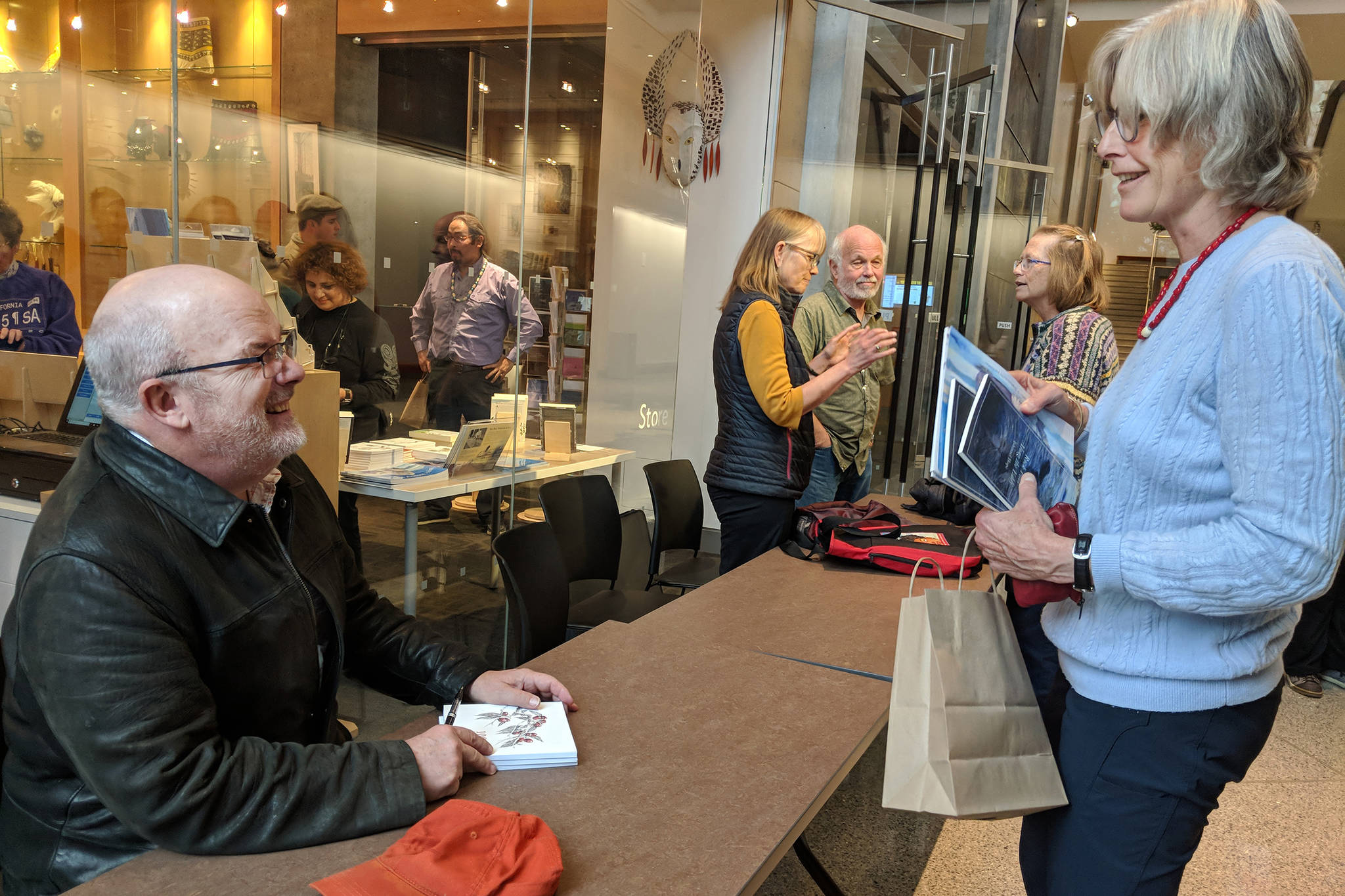They had many differences, but all of the authors gathered at the Alaska State Library, Archives and Museum on Thursday had one important thing in common: They are Alaskans.
In honor of Alaska Day, there was an all-Alaska literary festival at the Father Andrew P. Kashevaroff building featuring writers and illustrators of different ages, genders and backgrounds, who work in a number of genres.
“I hope everyone feels rich this afternoon,” said Ben Huff, Friends of the Alaska State Library, Archives and Museum board member, who emceed the event. “I know I do.”
Susi Gregg Fowler and illustrator Jim Fowler, Ishmael Hope, John Straley and Heather Lende each took time to read to a small crowd gathered in the lecture hall, answer questions and provide some information about their process and the background of their selected works.
The authors stayed after for a book signing. In some cases, it was more of a book exchange. Some of the authors bought each other’s books from the APK store and had them signed.
Combined, the disparate creators read everything from slice-of-life nonfiction to spleen-venting poetry to mischievous haikus to children’s stories.
The Fowlers talked about writing and illustrating children’s books, and the difference between being an author and an illustrator.
“When Susi gets a manuscript accepted, she gets a check,” Jim Fowler said. “When I get selected for an illustration, I get a deadline.”
They showed examples of their work, and read from, “Arctic Aesop’s Fables,” an adaptation of classic parables changed to include local fauna.
“I read lots of fables,” Susi Gregg Fowler said. “I had stacks of books and papers. I had to think, ‘What is going to work?’”
Hope read a few poems and discussed his influences, including Tlingit language, and a recent fascination with epic poetry.
“South Slavic poetry is mind-blowing,” Hope said. “I put some of the South Slavic Stuff over Homer (the Greek poet, not Alaska).”
Straley, a former state writer laureate, opted to read from his collection of haikus rather than detective fiction.
Afterward Straley said the haikus are compact, short and easy to deliver.
During his time at the podium, Straley spoke about some misconceptions about haikus, and said they made their way around Japan as a type of drinking game, which meant they could sometimes be crude and crass.
“Which is great for me,” Straley said.
Lende closed the reading and specifically chose an excerpt from her book, “Find the Good: Unexpected Life Lessons from a Small-Town Obituary Writer,” that she felt encapsulated her experience in Haines.
It told the story of a late Haines local, Cylde, and his funeral.
He sold fish, knew tragedy well and spread chemtrail conspiracy as well as kindness. An eclectic crowd of widows, musicians and punks showed up during the service to celebrate Clyde.
“This little piece seems to be a pretty good slice of my Alaska,” Lende said.
• Contact arts and culture reporter Ben Hohenstatt at 523-2243 or bhohenstatt@juneauempire.com. Follow him on Twitter at @capweekly.

